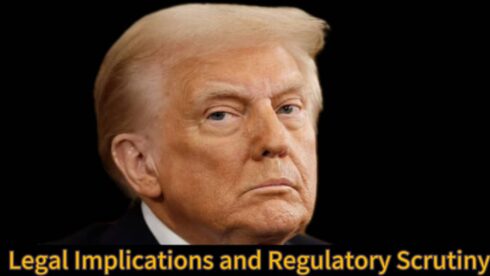Trump golf club hit with more than 12 health code violations, sparking renewed scrutiny on the facility’s management and operational standards. The violations, identified during a recent surprise inspection by local health authorities, range from improper food storage to unsanitary kitchen conditions. These infractions not only endanger public health but also call into question the establishment’s commitment to basic safety protocols.
The health department report paints a grim picture of neglect, highlighting repeated failures in hygiene practices. Patrons who expect luxury and safety at this high-profile club are now left questioning whether appearances are masking deeper issues. This scandal threatens to undermine the golf club’s brand, especially as it continues to attract elite clientele and public attention.
Detailed Breakdown of Health Code Violations
Trump golf club was found in breach of over a dozen specific health codes, including improper refrigeration temperatures, cross-contamination risks, and inadequate pest control measures. Inspectors noted expired food products and a lack of proper sanitation in food prep areas. Such breaches are severe, given the potential for foodborne illnesses.
Notably, the violations include structural issues such as faulty drainage and the presence of mold in storage rooms, conditions that exacerbate health risks. Experts warn that if these problems are not promptly rectified, the club could face temporary closure or hefty fines, damaging both its finances and reputation.
Management Response and Accountability Questions
Trump golf club’s management issued a terse statement acknowledging receipt of the health department’s findings but downplayed the severity of the violations. They claimed swift corrective actions have been initiated, emphasizing ongoing staff training and improved oversight. However, critics argue the response is insufficient, noting a pattern of past complaints and alleged cover-ups.
Accountability remains a contentious issue, with some insiders hinting at systemic negligence within the club’s leadership. The lack of transparency has fueled speculation about whether political influence has insulated the club from more rigorous enforcement. This controversy raises broader concerns about the enforcement of health regulations in politically connected establishments.
Public Reaction and Impact on Membership

News of the violations quickly spread across social media and local news outlets, eliciting strong reactions from the public and club members alike. Many expressed outrage and disappointment, questioning whether their health and safety were being compromised for the sake of prestige. Some long-time members have reportedly reconsidered their membership amid fears of ongoing negligence.
The scandal also presents a potential public relations nightmare, as the club’s image of exclusivity and luxury clashes with accusations of unsanitary conditions. Analysts predict that the fallout could lead to a membership decline and increased scrutiny from regulatory bodies, forcing the club to overhaul its operational practices to regain trust.
Legal Implications and Regulatory Scrutiny
With over a dozen violations, Trump golf club now faces the possibility of legal action and intensified regulatory scrutiny. Health authorities are reportedly considering imposing fines and may mandate regular inspections to ensure compliance. Persistent non-compliance could even trigger litigation or forced closure under public health laws.
Legal experts caution that this case could set a precedent for how health codes are enforced at elite private clubs nationwide. If the Trump golf club is held accountable, it may encourage stricter oversight of similar establishments, bridging gaps in health safety enforcement that have long been criticized for favoritism and laxity.
Broader Political and Ethical Ramifications
Beyond health concerns, the violations at Trump golf club evoke deeper political and ethical questions. The club’s ties to President Donald Trump amplify the controversy, with opponents framing this scandal as emblematic of broader issues of privilege, power, and regulatory evasion. Supporters argue the violations are overblown and politically motivated.
This incident invites a larger conversation about the intersection of politics, business, and public responsibility. It challenges the norms of accountability when elite institutions wield influence, suggesting a need for more transparent and impartial regulatory mechanisms. As the story unfolds, the Trump golf club’s health code violations may well become a symbol of systemic challenges facing regulatory bodies in politically charged environments.














